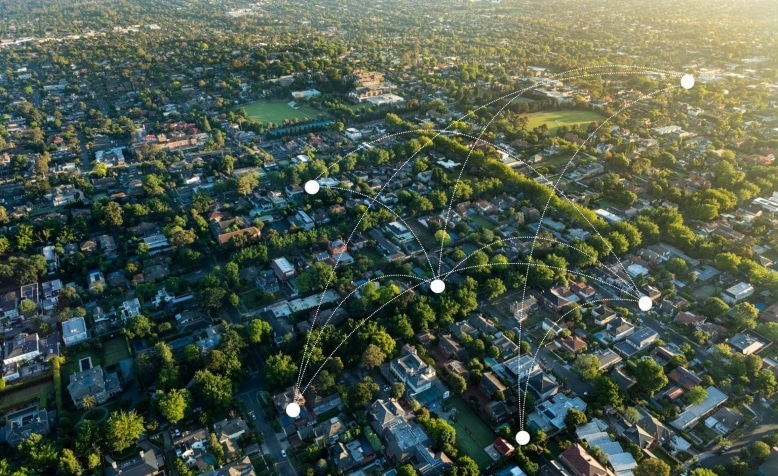Broadband Office Name: South Carolina Broadband Office (SCBBO)
BEAD Award Amount: $551.5 M
South Carolina Broadband Director: Jim Stritzinger
Website: https://ors.sc.gov/broadband
South Carolina BEAD Program Tracker
| State | IP Vol 1 Approval | IP Vol 2 Approval | Challenge Process Submission Closed | Submitted Challenge Results to NTIA | Challenge Process Results Approved by NTIA | 1-Year Subgrantee Selection Process |
|---|---|---|---|---|---|---|
| South Carolina | Yes | No | Yes | No | N/A | N/A |
South Carolina BEAD Program Information

Key Updates
South Carolina has received approval for their Initial Proposal Volume 1 and is currently awaiting NTIA approval for their Initial Proposal Volume 2.
The state is in the final determination phase of the State BEAD Challenge Process, which started on June 15, 2024, and will end on July 14, 2024.
Once these determinations are made, the South Carolina Broadband Office (SCBBO) will submit them to the NTIA for final review.
South Carolina BEAD Program Plans & Maps
South Carolina BEAD Program Initial Proposal Volume 2: Overview
*Information is subject to change. South Carolina is awaiting official approval of Initial Proposal Volume 2 from the NTIA.
BEAD Long-Term Objectives
The South Carolina Broadband Office (SCBBO) has outlined the following goals for the BEAD program:
- Expand Access: Achieve broadband speeds of 25/3 Mbps by 2026 and 100/20 Mbps by 2028.
- Model, Map, and Plan: Develop detailed models and maps to plan broadband expansion effectively.
- Measure Affordability: Assess and ensure the affordability of broadband services.
- Expand Digital Opportunities: Increase digital literacy and access to digital resources.
- Device Support: Provide support for devices to ensure residents can access the internet.
- Support ISPs: Assist Internet Service Providers (ISPs) in expanding their networks and services.
- Provide Community Support and Technical Assistance: Offer support and technical assistance to communities to facilitate broadband adoption and usage.
South Carolina BEAD Program Project Area Design
In South Carolina, project areas for the BEAD program are being designed at the county level. The South Carolina Broadband Office (SCBBO) is encouraging partnerships among stakeholders, including local governments, Internet Service Providers (ISPs), and community organizations, to ensure comprehensive and effective broadband deployment across the state. This collaborative approach aims to maximize resources and achieve widespread broadband coverage.
South Carolina BEAD Program Extremely High Cost Threshold
SCBBO intends to use a market-based approach to determine Extremely High Cost Per Location Thresholds (EHCPLT) rather than relying on CQA data. Here are the key steps in their approach:
- Market-Based Approach: EHCPLTs will be determined based on market conditions and costs rather than predefined data sets.
- Comprehensive Grant Applications: Prospective subgrantees must include all Broadband Serviceable Location (BSL) structures in their grant applications.
- Justification for Exclusions: If a subgrantee does not include all eligible BSLs and is not partnering with other ISPs to cover the entire county, they must provide justification for leaving out these BSLs, including the deployment price.
- Negotiation for Inclusion: The SCBBO will attempt to negotiate the inclusion of excluded BSLs in the grant submission to ensure comprehensive coverage.
BEAD Deployment Subgrantee Selection
SCBBO is asking for the following preregistration evidence from subgrantees and compliance with: Financial capability, managerial capability, operational capability, technical capability, ownership info, public funding info, compliance with laws, cybersecurity/supply chain compliance, and BABA/EHP/NEPA/NHPA compliance.
Primary Scoring Criteria for Priority Broadband Projects
- 45 pts – Minimal BEAD Outlay
- 25 pts – Affordability
- 20 pts – Fair Labor Practices
Secondary Scoring Criteria
- 10 pts – Speed to Deployment
Additional Secondary Scoring Criteria for Other Last-Mile Projects
- 5 pts – Speed of Network and Technical Capabilities
- 5 pts – Speed to Deployment
BEAD Non-Deployment Subgrantee Selection
SCBBO will consider various non-deployment activities that align with the BEAD Notice of Funding Opportunity (NOFO). These activities include:
- User Training:
- Training on cybersecurity, privacy, and other digital safety matters.
- Digital Literacy and Upskilling:
- Programs aimed at improving digital literacy and providing opportunities for upskilling.
- Education Programs:
- Computer science, coding, and cybersecurity education programs.
- Implementation of Digital Equity Plans:
- Executing Eligible Entity digital equity plans to promote inclusion.
- Broadband Sign-Up Assistance:
- Programs that offer assistance with broadband sign-ups and provide technology support.
- Multi-Lingual Outreach:
- Outreach efforts in multiple languages to support adoption and digital literacy.
- Prisoner Education:
- Educational programs for prisoners to improve their digital skills and opportunities.
- Digital Navigators:
- Employing digital navigators to assist individuals in navigating digital resources and services.
- Stakeholder Engagement Costs:
- Covering costs associated with engaging stakeholders in broadband initiatives.
- Smart Technologies in Farming:
- Activities related to the incorporation of “smart” technologies and capabilities into farming practices.
- Broadband Adoption Initiatives:
- Programs aimed at increasing broadband adoption among residents.
- Other Allowable Costs:
- Any other allowable costs necessary for carrying out programmatic activities of an award.
- Other Non-Deployment Activities:
- Any other activities related to non-deployment that align with the goals and objectives of the BEAD program.
BEAD Eligible Entity Implementation
SCBBO plans to utilize a portion of its initial 20% BEAD allocation to collaborate with another state agency to support various broadband-related workforce activities. These activities include:
- Apprenticeships:
- Develop and support apprenticeship programs to train individuals for careers in broadband deployment and maintenance.
- Broadband Permitting Specialists:
- Train and employ specialists to streamline the broadband permitting process, ensuring faster and more efficient deployment.
- Middle-Mile Enhancement:
- Improve and expand middle-mile infrastructure to support last-mile broadband connections.
- Cybersecurity, AI, or Quantum Computing:
- Provide education and training programs in advanced fields such as cybersecurity, artificial intelligence, and quantum computing to prepare the workforce for future technological advancements.
- Precision Agriculture:
- Implement programs that incorporate smart technologies into farming practices, enhancing productivity and efficiency in agriculture.
- Telehealth:
- Support the expansion of telehealth services by training healthcare providers and supporting infrastructure improvements.
- K-12 Education:
- Enhance digital literacy and technology education in K-12 schools to prepare students for the digital economy.
BEAD Local, Tribe, and Regional Broadband Planning Process
Tribal Engagement:
- Leadership within the Catawba Nation, the only tribe in South Carolina, has confirmed that all members have access to reliable broadband.
Stakeholder Network:
- SCBBO has created a diverse network of stakeholders, including public, private, higher education, and nonprofit organizations, all working towards ensuring internet access for all residents.
South Carolina Broadband Advisory Council (BBAC):
- Established a 21-person council to advise on broadband-related issues and initiatives.
Communication and Planning Tools:
- Online Tools and Resources: Utilizes presentations, surveys, and distribution lists to facilitate and communicate broadband planning efforts.
- SCDigitalDivide: Provides information on funded projects, county-based statistics, areas-of-need maps, and planning maps for local stakeholders, along with direct linkage to the FCC National Broadband Map.
Grant Notification Distribution List:
- Established a grant notification distribution list that includes over 340 individual contacts. Correspondence is sent through ConstantContact to provide timely updates from the office.
BEAD Labor Standards & Protection
SCBBO requires all BEAD subgrantees to submit the following information:
A record of past compliance with federal/employment laws:
- Must address info on deployment projects within the last 3 years.
- Certification form from an Officer/Director level employee of past compliance.
- Written confirmation that subgrantee has disclosed any violations from contractors within the last 3 years.
- Discussion of workforce plan
Plans for ensuring compliance with federal/employment laws:
- How subgrantee will ensure compliance in its labor/employment practices.
- Info on applicable wage scales, wage, and overtime practices for each class of employee expected to be involved in physical construction of the network.
- How subgrantee will ensure implementation of workplace safety committees.
- Comply with the Prevailing Wages Act.
- Other items as outlined in the BEAD NOFO.
BEAD Minority Business Enterprises / Women’s Business Enterprises / Labor Surplus Area Firms Inclusion
SCBBO proposes to facilitate outreach events to connect Minority Business Enterprises (MBEs) and Women Business Enterprises (WBEs) with known Internet Service Providers (ISPs) that provide mass-market retail services to consumers in the state.
Certification and Affirmative Steps:
- Solicitation Lists:
- Place qualified MBEs and WBEs on solicitation lists to ensure they are considered for relevant opportunities.
- Targeted Solicitation:
- Ensure that MBEs and WBEs are solicited whenever they are potential sources for contracts or subcontracts.
- Dividing Requirements:
- Divide total requirements, when economically feasible, into smaller tasks or quantities to facilitate maximum participation by MBEs and WBEs.
- Encouraging Participation:
- Establish delivery schedules that encourage participation by MBEs and WBEs.
- Utilizing Support Services:
- Use the services and assistance of organizations such as the Small Business Administration (SBA), the Minority Business Development Agency of the Department of Commerce, and the SBA Mentor-Protégé program to support MBEs and WBEs.
- Subgrantee Requirements:
- Require each subgrantee to take these affirmative steps to ensure the inclusion of MBEs and WBEs in their projects.
BEAD Cost & Barrier Reduction
1. Promoting the use of existing infrastructure.
2. Promoting and adapting dig-once policies.
3. Streamlining permitting processes.
4. Streamlining cost-effective access to poles, conduits, and easements.
5. Streamlining rights of way, including the imposition of reasonable access requirements.
BEAD Low-Cost Broadband Service Option
To participate in the BEAD program, each ISP must meet the following requirements:
- Low-Cost Broadband Service Option (LCBSO):
- Establish their own LCBSO with a fixed price excluding the ACP benefit.
- Submit a justification to the SCBBO explaining why the LCBSO is affordable to the eligible population within the BEAD project area. This should include a market analysis or other objective evidence.
- Offering LCBSO:
- Offer the LCBSO to each eligible customer from the time access is available to their home.
- Participation in Affordable Connectivity Program (ACP):
- Participate in the FCC’s Affordable Connectivity Program (ACP) or any successor program.
- Ensure eligible consumers are aware of the ISP’s participation in both the low-cost plan and ACP.
- Availability:
- Ensure that the LCBSO is available to eligible locations within the awarded BEAD project areas.
- Service Specifications:
- Provide consistent and reliable speeds of 100 Mbps download and 20 Mbps upload.
- Ensure typical latency measurements of no more than 100 milliseconds.
- The service must not be subject to data caps, surcharges, or usage-based throttling.
- Upgrades:
- Upgrade LCBSO participants, at no additional charge, if better service options become available.
BEAD Middle-Class Affordability
Affordable Pricing Range:
- High-speed internet pricing in South Carolina should range between approximately $53 to $118 per month, with an average price around $80 per month.
Program Focus:
- Affordability in Scoring Criteria:
- Emphasize affordability as a key factor in the scoring criteria for BEAD program applications.
- Promotion of Consumer Pricing Transparency:
- Encourage transparency in consumer pricing to ensure residents are well-informed about the costs associated with high-speed internet services.
